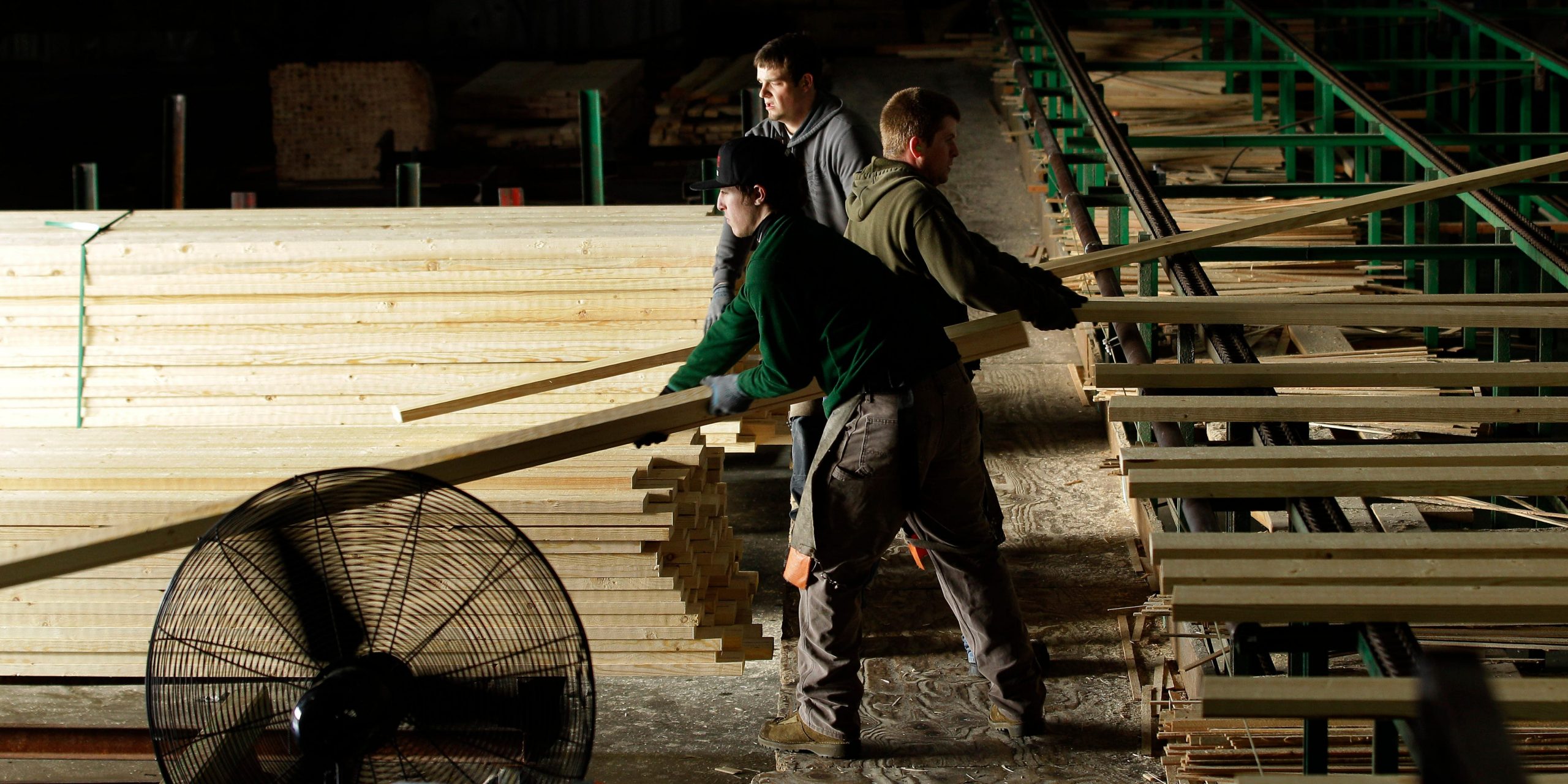Lumber prices continue to slide as pandemic-driven boom wanes

AP Photo/Ted S. Warren
- Lumber futures fell as low as $944 per thousand board feet on Tuesday.
- The fall marks the 10th straight day of lumber price reprieve for the hot commodity.
- Experts predict lumber's price will remain elevated from historic norms.
- Sign up here for our daily newsletter, 10 Things Before the Opening Bell.
Lumber prices slid again on Tuesday as the pandemic-driven boom in the commodity continues to wane.
Specifically, lumber futures fell as low as $944 per thousand board feet on Tuesday before mounting a mild recovery. The fall marked the 10th straight day of lumber pricing reprieve for builders and renovators.
Lumber's recent rise has been so dramatic though, that prices are still up 167% since this time last year.
Kunal Lunawat, co-founder and managing partner at Agya Ventures, a real estate technology fund, said that lumber's rise was a result of the pandemic and low-interest rates, which caused many builders to hoard supplies anticipating a surge in construction.
"This created a classic demand-supply mismatch," Lunawat told Insider.
"While the current prices are unsustainable, in general, one can expect lumber prices to trend upwards. This is purely predicated on the demand for housing in the US and the amount of stock coming to the market over the next decade," he added.
Mike Wisnefski, a former lumber trader and chief executive of the online marketplace MaterialsXchange, told the Wall Street Journal that "everyone was buying more than they needed" due to a "fear of lack of availability."
Now, Wisnefski says shadow inventory is flooding the market as businesses that are typically buyers sell from their own stockpiles, leading to a dramatic drop in prices.
Over the long term, however, experts seem to agree lumber will remain elevated from historic norms.
Devin Stockfish, the CEO of one of the largest lumber producers, Weyerhaeuser, told investors at a conference last week that he doesn't think $1,000 lumber prices are "the new normal."
However, Stockfish added:
"When you think about the amount of housing that we're going to have to build in the U.S. over the next three, five, 10 years, that's just a significant amount of demand for wood products."
Stockfish said that his company will continue to look for timberland opportunities to meet the strong demand, saying the firm will be "active on that front."
Kyle Little, Sherwood Lumber's chief operating officer, told FOX Business on Tuesday that "ultimately this decline was very much inevitable."
"When you have over a 400% price move in about a 15-month period of time, the volatility involved with that will lead to price adjustments like we are experiencing right now," Little said.
The CEO concluded by saying that based on his team's analysis, they believe "we are midway through the cycle and lumber as a whole is going to trade at more than double its historical norms for the foreseeable future."
